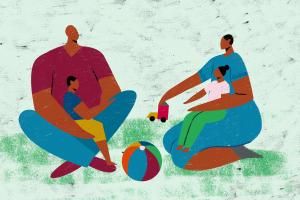This paper examines the relationship between child labour and educational attainment and explores the distinction between harmful and non-harmful agricultural cocoa work. The authors conducted a secondary analysis of data on 3,338 children who reported attending school in 2018 across cocoa-growing regions of Ghana and Côte d’Ivoire. To address differences between harmful and non-harmful child labour, they differentiated work completed by a child by hazardous activity engagement. These groups of child labour were then modelled against educational attainment, defined by whether or not the child needed to repeat a class. The authors then conducted a mediation analysis to assess whether injury mediates this relationship.
Results show that hazardous child labour increases the odds of repeating a class and work-related injury compared to non-hazardous labour. The effect of hazardous child labour on academic attainment was also found to be mediated by work-related injuries by 14%. Educational attainment is associated with hazardous labour activities and the odds of injury and not the act of participation in agricultural labour alone. Programmes based on strong measures of harmful work will foster better protection for children who are most at risk and may inform global debates around the benefits versus the risks of child labour.

